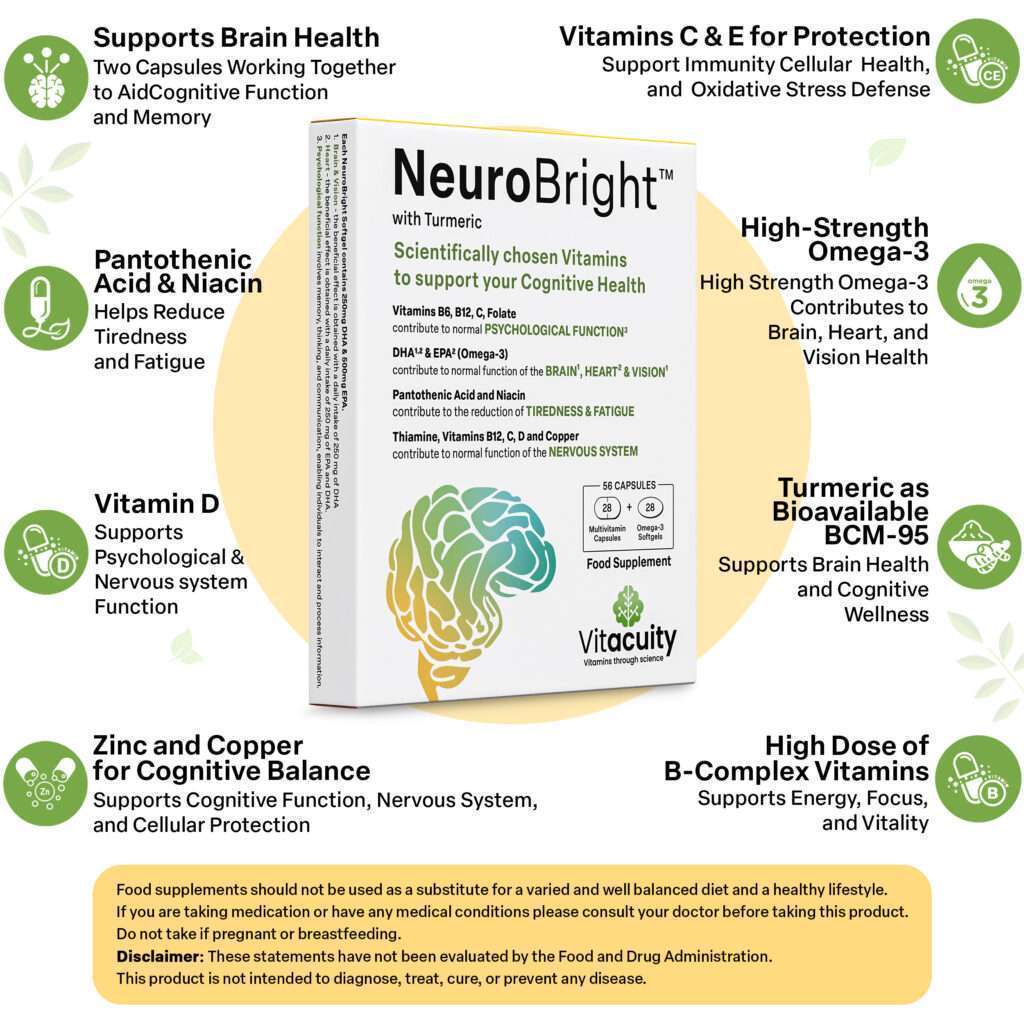The Vitamins and Minerals That Support Energy Indirectly
In the previous blog, we explored the vitamins and minerals that directly participate in ATP production, which is the process
Elevated levels of Homocysteine—a common amino acid in the blood—have been linked to an increased risk of cognitive decline and dementia. A comprehensive review “Homocysteine and Dementia: An International Consensus Statement “by international experts, including Professor David Smith of Oxford University, published in the Journal of Alzheimer’s Disease in 2018, delves into this association and explores the potential benefits of B vitamin supplementation in mitigating these risks.
Understanding Homocysteine and Its Impact
Homocysteine is an amino acid produced in the body, primarily from consuming meat. While it’s a natural component of our metabolism, elevated levels can be harmful. High homocysteine levels have been associated with damage to blood vessels and an increased risk of cardiovascular diseases. More recently, research has indicated a strong link between elevated homocysteine and cognitive decline, including conditions like dementia and Alzheimer’s disease.
Key Findings from the Consensus Statement
The international panel of experts reviewed extensive literature spanning two decades and concluded:
Elevated Homocysteine as a Risk Factor
Moderately high levels of homocysteine are a modifiable risk factor for developing cognitive decline and dementia in older adults. Studies indicate that People with elevated homocysteine levels are up to 2.5 times more likely to develop Dementia.
Role of B Vitamins
B vitamins—specifically folate (B9), vitamin B12, and vitamin B6—play a crucial role in metabolizing homocysteine. Deficiencies in these vitamins can lead to elevated homocysteine levels. Supplementation with these vitamins has been shown to effectively lower homocysteine concentrations in the blood.
Impact on Brain Health
Clinical trials involving elderly individuals with cognitive impairment demonstrated that lowering homocysteine levels through B vitamin supplementation significantly slowed the rate of brain atrophy (shrinkage) and cognitive decline. This suggests a protective effect of B vitamins against the progression of cognitive impairments.
Implications for Public Health
Given that elevated homocysteine levels are common in the elderly and can be easily, inexpensively, and safely treated with B vitamins, the public health implications are substantial. Implementing routine screening for homocysteine levels in older adults and providing appropriate B vitamin supplementation could be a strategic approach to reducing the incidence of dementia and related cognitive disorders.
Conclusion
The consensus statement underscores the importance of recognizing elevated homocysteine as a modifiable risk factor for cognitive decline and dementia. By addressing this through dietary interventions and supplementation with B vitamins, there is potential to significantly impact brain health in the aging population. Further research is encouraged to explore the long-term benefits of such interventions and to establish comprehensive public health strategies aimed at cognitive health preservation.
Glossary of Medical Terms
Homocysteine: An amino acid in the blood that, at elevated levels, is associated with an increased risk of cardiovascular and cognitive diseases.
Folate (Vitamin B9): A B vitamin essential for DNA synthesis and repair, and for metabolizing amino acids like homocysteine.
Vitamin B12: A B vitamin important for nerve function, red blood cell production, and DNA synthesis.
Vitamin B6: A B vitamin involved in over 100 enzyme reactions in the body, including the metabolism of homocysteine.
Cognitive Decline: A gradual loss of cognitive abilities, including memory and thinking skills.
Dementia: A group of symptoms affecting memory, thinking, and social abilities severely enough to interfere with daily life.
Alzheimer’s Disease: A progressive neurological disorder that causes brain cells to degenerate, leading to memory loss and cognitive decline.
Brain Atrophy: The loss of neurons and the connections between them, leading to a decrease in brain size.

If you’d like to see more newsletters please sign up below and get free eBook
To receive our Newsletter of Research into Vitamins that may help Memory, reduce Tiredness and reduce the chances of Dementia, Alzheimer’s and Cognitive decline please leave your email address below.
In the previous blog, we explored the vitamins and minerals that directly participate in ATP production, which is the process
Feeling tired even after a full night’s sleep? Struggling with afternoon crashes, brain fog, or low stamina during workouts? While
We use cookies to enhance your browsing experience and to analyse our website traffic. We will not share any of your personal details.